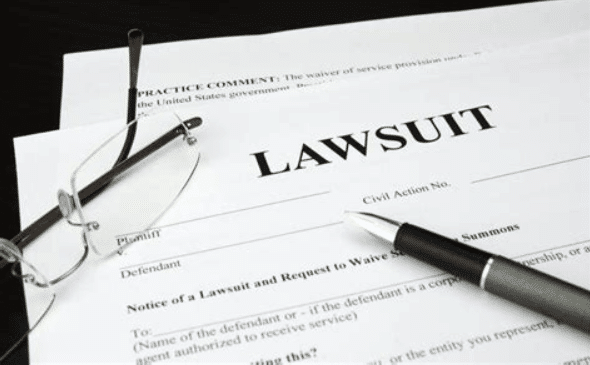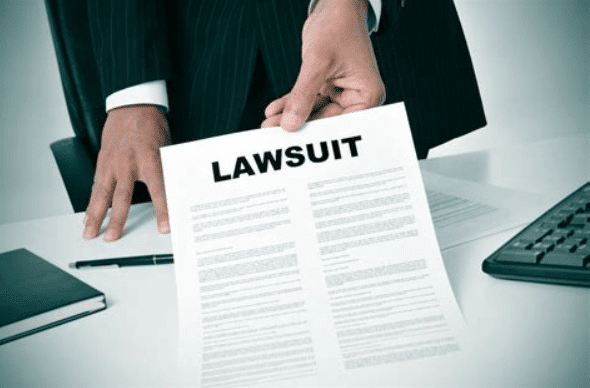When facing a debt lawsuit in Texas, you have the option to check your case status and obtain access to your case records either at the courthouse or online, available in most counties. The initial step towards prevailing against debt collectors in court is to respond to the lawsuit with an Answer, a process streamlined by ZumaZip.com, enabling you to draft and file your response in just 15 minutes.
Debt collectors often rely on consumers failing to pursue their cases or neglecting to appear in court, hoping for a favorable judgment. Today, we aim to disrupt this narrative by aiding you in preparing for court proceedings. We will elucidate how Texas’s judicial system operates and guide you on accessing your court records.
Despite Texas boasting the highest number of counties in the United States at 254, the state government has implemented measures to facilitate convenient access to court records, either online or through visits to the pertinent courthouse. This accessibility is particularly advantageous for individuals contending with debt collection cases, as reviewing case records can significantly enhance their preparedness for court.
In the following sections, we will outline the process of accessing your Texas court case records. But before delving into that, let’s first unpack the structure of the Texas court system.
Sued for debt in Texas? Use ZumaZip Settle to settle your debt for good.
Texas court structure
When you know what type of court has jurisdiction over your debt lawsuit, it will be easier for you to find your court case records and stay updated on your case status. Since debt collection lawsuits are considered civil cases, we will focus on the Texas civil court structure in this section.
Texas has a relatively complex court structure compared to other states. The various levels ensure they offer optimal services to all counties—considering it the second most populated state, with approx 29.5 million people. The following are the various courts that handle civil cases and a summary of their jurisdictions.
- Supreme Court: This is the highest court in the state that deals with civil cases. It has jurisdiction over civil cases appealed from the Court of Appeals. So, if you disagree with the decision of your debt lawsuit, your case could end up here if it keeps getting appealed.
- Court of Appeals: There are 14 Courts of Appeals, the intermediate appellate courts in the state. They have regional jurisdiction over appeals in the counties designated to them. They hear civil appeals and preside over writ applications.
- District Court: This trial court has original jurisdiction over civil actions above $200. It also hears appeals from the other lower courts.
- County Court: All counties have at least one County Court accessible to all residents. They hear civil action cases of between $200 to $20,000 and cases from the Justice Court that were appealed.
- Justice of Peace Court: This court hears civil action cases of up to $20,000 and small claims not exceeding $10,000.
Your debt collection case will be heard in your county’s Justice Court, County Court, or District Court, depending on the amount in question. It’s likely that the case is filed in the small claims division. The judges fast-track cases at this level, and you may receive a judgment before 60 days are over. Hence, respond to your debt collection lawsuit immediately and prepare to argue your case.
You’re probably thinking you need to hire an attorney to represent you in your debt collection case. Finding a lawyer can be stressful and expensive. Save yourself the anxiety and money by representing yourself with SoloSuit’s help.
How to find your case number
Finding your case number is easy, thanks to the numbering system every court in Texas uses. When your creditor approached the court, the court clerk assessed their matter and assigned it a number. This number is derived from the year the case was filed, the case type, the court’s name, and the sequential number for civil claims for that year.
To find your case number, you can either visit the courthouse and make a formal request to the court custodian or go to your county’s online public access portal and look for it using the name search option. See the list of counties below.
Let’s take a look at an example.
Example: Brandon was sued for an $800 credit card debt in Texas by a debt collector called RGS Financial. After doing some research online, Brandon learned that the statute of limitations on his debt had expired just a few weeks ago and that the RGS Financial had no legal right to sue. He used SoloSuit to draft and file a response to the case. In his Answer document, Brandon added the expired statute of limitations as one of his affirmative defenses. Then, Brandon went used the Bexar County case search portal to track the status of his case. After a few months, the case was dismissed.
How to access your court records in Texas
Viewing your court records at any time can help ease the pressure of appearing in court—you’ll have an idea of what to expect. Let’s examine the two main ways you can access your court records: at the courthouse or online.
Access your court case records in person
Making a trip to the courthouse is a viable option if you won’t be going off your regular schedule or cause delays in your other activities. The initial step to accessing your records is to find the court’s location.
Use the Texas courts directory to search for your courthouse contact information by entering the county in which you live and the type of court your case is filed into. You’ll immediately access the physical address, phone number, and website link.
At the courthouse, you may be required to complete a written request, and the information you give will be used to locate your file. Usually, you can just ask the court clerk to search your records for you. Ensure the details you give are accurate, including the spelling of your name. Notably, some courthouses also provide public self-service terminals to search for the records by yourself.
Access your court case records online
The online method gives you instant access to your court records. The easiest approach is to use your case number because other options, such as party search, case status search, and attorney search, require you to enter more details. However, you’ll still end up with your case records regardless of the option chosen.
The appellate courts have a site-wide search portal for all appeals, while the other courts have an online public access search portal provided at the county level. The following is an exhaustive list of the court case access portal to each county in Texas (if your county is not listed, there is no online access portal):
SoloSuit can help you
SoloSuit is committed to assisting debtors in managing their debt situation by providing helpful information through our youtube videos and hundreds of debt-specific blog articles. We also have documents that you can use to respond to creditors at every stage of your collection process. These documents include a Debt Validation Letter, an Answer, and a Motion to Compel Arbitration. You can also use ZumaZip Settle to settle your debt.
What is ZumaZip?
ZumaZip is a convenient solution designed to streamline your response to a debt collection lawsuit. Here’s a breakdown of what you can expect when you use ZumaZip:
Firstly, you’ll access our user-friendly web application, which guides you through the process step by step. You’ll be prompted to answer a series of questions related to your specific situation. Once you’ve completed the questionnaire, you have the option to either print out the finalized forms and mail them to the appropriate courts yourself, or you can opt to utilize ZumaZip’s services to file them on your behalf. Additionally, if you choose this option, an attorney will review your document for added peace of mind.
If you’re seeking guidance on how to effectively respond to a debt collection lawsuit, ZumaZip can provide the assistance you need. Feel free to explore our FAQs for more information on what ZumaZip has to offer.
What if I haven’t been sued yet?
If you’ve only received a collections notice, but not a lawsuit, the best way to respond is with a Debt Validation Letter. When a debt collector contacts you in any way, whether it’s by phone or mail, you can respond by formally requesting a debt validation with a Debt Validation Letter . This letter notifies the collector that you dispute the debt and forces them to provide proof you owe the debt. They can’t call you or continue collecting until they provide validation of the debt. This flowchart shows how you can use a Debt Validation Letter to win.
Get started with a Debt Validation Letter here.
How to Answer a Summons for debt collection in all 50 states
Here’s a list of guides on how to respond to a debt collection lawsuit in each state:
- Alabama
- Alaska
- Arizona
- Arkansas
- California
- Colorado
- Connecticut
- Delaware
- Florida
- Georgia
- Hawaii
- Idaho
- Illinois
- Indiana
- Iowa
- Kansas
- Kentucky
- Louisiana
- Maine
- Maryland
- Massachusetts
- Michigan
- Minnesota
- Mississippi
- Missouri
- Montana
- Nebraska
- Nevada
- New Hampshire
- New Jersey
- New Mexico
- New York
- North Carolina
- North Dakota
- Ohio
- Oklahoma
- Oregon
- Pennsylvania
- Rhode Island
- South Carolina
- South Dakota
- Tennessee
- Texas
- Utah
- Vermont; Vermont (Small Claims court)
- Virginia
- Washington
- West Virginia
- Wisconsin
- Wyoming
Guides on how to beat every debt collector
Hey there! Facing off against a debt collector can feel like a daunting challenge, but fear not! We’re here to help you navigate through it all with our handy guides designed to assist you in beating every debt collector you encounter. Whether you’re facing a new lawsuit or dealing with a persistent collector, we’ve got your back. Stay positive, stay informed, and let’s tackle this together!
- Absolute Resolutions Investments LLC
- Accredited Collection Services
- Alliance One
- Amcol Clmbia
- American Recovery Service
- Asset Acceptance LLC
- Asset Recovery Solutions
- Associated Credit Services
- Autovest LLC
- Cach LLC
- Cavalry SPV I LLC
- Cerastes LLC
- Colinfobur
- Covington Credit
- Crown Asset Management
- CTC Debt Collector
- Cypress Financial Recoveries
- Delanor Kemper & Associates
- Eagle Loan of Ohio
- Educap
- Estate Information Services
- FIA Card Services
- Forster & Garbus
- Freshview Solutions
- Fulton Friedman & Gullace LLP
- Harvest Credit Management
- Howard Lee Schiff
- Hudson & Keyse LLC
- Integras Capital Recovery LLC
- Javitch Block
- Jefferson Capital Systems LLC
- LVNV Funding
- Mannbracken
- Mariner Finance
- Medicredit
- Michael J Adams PC
- Michael J Scott
- Midland Funding LLC
- Mullooly, Jeffrey, Rooney & Flynn
- Mountain Land Collections
- MRS Associates
- National Collegiate Trust
- Nationstar Foreclosure
- Northstar Capital Acquisition
- NCEP LLC
- NRC Collection Agency
- OneMain Financial
- Palisades Collection LLC
- Pallida LLC
- Paragon Revenue Group
- Pinnacle Collections Agency
- PMAB LLC
- Portfolio Recovery Associates
- Provest Law
- PYOD LLC
- Reunion Student Loan Finance Corporation
- Revenue Group
- Regents and Associates
- RSIEH
- Salander Enterprises LLC
- Second Round Sub LLC
- Security Credit Services
- Sherman Financial Group
- Suttell and Hammer
- T-Mobile
- Transworld Systems
- Tulsa Teachers Credit Union
- UCB Collection
- Velo Law Office
- Velocity Investments
- Waypoint Resource Group
- Weinberg and Associates
- Wolpoff & Abramson
Settle your medical debt
Having a health challenge is stressful, but dealing medical debt on top of it is overwhelming. Here are some resources on how to manage medical debt.
- Am I Responsible for My Spouse’s Medical Debt?
- Do I Need a Lawyer for Medical Bills?
- Do I Need a Lawyer to Fight Medical Bill Debt?
- Does Bankruptcy Clear Medical Debt?
- How Much Do Collection Agencies Pay for Medical Debt?
- How to Find Medical Debt Forgiveness Programs
- Is There a Statute of Limitations on Medical Bills?
- Medical Debt Statute of Limitations by State
- Summoned to Court for Medical Bills — What Do I Do?
- Summoned to Court for Medical Bills? What to Do Next
Stop calls from Debt Collectors
Do you keep getting calls from an unknown number, only to realize that it’s a debt collector on the other line? If you’ve been called by any of the following numbers, chances are you have collectors coming after you, and we’ll tell you how to stop them.
- 800-390-7584
- 800-289-8004
- 800-955-6600
- 877-366-0169
- 877-591-0747
- 800-278-2420
- 800-604-0064
- 800-846-6406
- 877-317-0948
- 888-899-4332
- 888-912-7925
- 202-367-9070
- 502-267-7522
Other wage garnishment resources
- Bank Account Garnishment and Liens in Texas
- Can I Stop Wage Garnishment?
- Can My Wife’s Bank Account Be Garnished for My Debt?
- Can Payday Loans Garnish Your Wages?
- Can pensions be garnished?
- Can Private Disability Payments Be Garnished?
- Can Social Security Disability Be Garnished?
- Can They Garnish Your Wages for Credit Card Debt?
- Can You Stop a Garnishment Once It Starts?
- Guide to Garnishment Limits by State
- How Can I Stop Wage Garnishments Immediately?
- How Long Before a Creditor Can Garnish Wages?
- How Long Does It Take to Get Garnished Wages Back?
- How to Fight a Wage Garnishment
- How to Prevent Wage Garnishment
- How to Stop a Garnishment
- How to Stop Social Security Wage Garnishment
- How to Stop Wage Garnishment — Everything You Need to Know
- New York Garnishment Laws – Overview
- Ohio Garnishment Laws — What They Say
- Wage Garnishment Lawyer
- What Is Wage Garnishment?
Guides on Arbitration
If the thought of going to court stresses you out, you’re not alone. Many Americans who are sued for credit card debt utilize a Motion to Compel Arbitration to push their case out of court and into arbitration.
Below are some resources on how to use an arbitration clause to your advantage and win a debt lawsuit.
- How Arbitration Works
- How to Find an Arbitration Clause in Your Credit Agreement
- How to Make a Motion to Compel Arbitration
- How to Make a Motion to Compel Arbitration in Florida
- How to Make a Motion to Compel Arbitration Without an Attorney
- How Credit Card Arbitration Works
- Motion to Compel Arbitration in California
- Sample Motion to Compel Arbitration
Federal Debt Collection Laws Can Protect You
Knowing your rights makes it easier to stand up for your rights. Below, we’ve compiled all our articles on federal debt collection laws that protect you from unfair practices.
- 15 USC 1692 Explained
- Does the Fair Credit Reporting Act Work in Florida?
- FDCPA Violations List
- How to File an FDCPA Complaint Against Your Debt Collector (Ultimate Guide)
- How to Make a Fair Debt Collection Practices Act Demand Letter
- How to Submit a Transunion Dispute
- How to Submit an Equifax Dispute
- How to Submit an Experian Dispute
- What Debt Collectors Cannot Do — FDCPA Explained
- What Does Account Information Disputed by Consumer Meets FCRA Requirements Mean?
- What does “meets FCRA requirements” mean?
- What does FCRA stand for?
- What is the Consumer Credit Protection Act
Resolve Your Debt with Your Creditor
Some creditors, banks, and lenders have an internal collections department. If they come after you for a debt, ZumaZip can still help you respond and resolve the debt. Here’s a list of guides on how to resolve debt with different creditors.
- American Express; American Express – Debt Collection
- Bank of America
- Barclay
- Best Buy Credit Card
- Capital One
- Chase
- Credit One Bank
- Old Navy Credit Card
- PayPal Synchrony Card
- Regional Finance
- Retailers National Bank
- Reunion Student Loan Finance Corporation
- SYNCB/PPEXTR
- Synchrony Bank
- Synchrony Walmart Card
- Target National Bank
- Webbank
- Wells Fargo
- Can I Pay My Original Creditor Instead of a Debt Collection Agency?
- Can I Settle a Debt with the Original Creditor?
Check the Status of Your Court Case
Don’t have time to go to your local courthouse to check the status of your case? We’ve created a guide on how to check the status of your case in every state, complete with online search tools and court directories.
- Alabama Court Case Search—Find Your Lawsuit
- Alaska Court Case Search — Find Your Lawsuit
- Arizona Court Case Search – Find Your Lawsuit
- Arkansas Court Case Search — Find Your Lawsuit
- California Court Case Search- Find Your Lawsuit
- Colorado Court Case Search — Find Your Lawsuit
- Connecticut Case Lookup — Find Your Court Case
- Delaware Court Case Search — Find Your Lawsuit
- Florida Court Case Search — Find Your Lawsuit
- Georgia Court Case Search — Find Your Lawsuit
- Hawaii Court Case Search — Find Your Lawsuit
- Idaho Court Case Search – Find Your Lawsuit
- Illinois Court Case Search — Find Your Lawsuit
- Indiana Court Case Search — Find Your Lawsuit
- Iowa Court Case Search — Find Your Lawsuit
- Kansas Court Case Search — Find Your Lawsuit
- Kentucky Court Case Search — Find Your Lawsuit
- Louisiana Court Case Search — Find Your Lawsuit
- Maine Court Case Search — Find Your Lawsuit
- Maryland Court Case Search — Find Your Lawsuit
- Massachusetts Court Case Search — Find Your Lawsuit
- Michigan Court Case Search — Find Your Lawsuit
- Minnesota Court Case Search — Find Your Lawsuit
- Mississippi Court Case Search — Find Your Lawsuit
- Missouri Court Case Search — Find Your Lawsuit
- Montana Court Case Search — Find Your Lawsuit
- Nebraska Court Case Search — Find Your Lawsuit
- Nevada Court Case Search — Find Your Lawsuit
- New Hampshire Court Case Search — Find Your Lawsuit
- New Jersey Court Case Search—Find Your Lawsuit
- New Mexico Court Case Search – Find Your Lawsuit
- New York Case Search — Find Your Lawsuit
- North Carolina Court Case Search — Find Your Lawsuit
- North Dakota Court Case Search — Find Your Lawsuit
- Ohio Court Case Search — Find Your Lawsuit
- Oklahoma Court Case Search — Find Your Lawsuit
- Oregon Court Case Search — Find Your Lawsuit
- Pennsylvania Court Case Search — Find Your Lawsuit
- Rhode Island Court Case Search — Find Your Lawsuit
- South Carolina Court Case Search — Find Your Lawsuit
- South Dakota Court Case Search — Find Your Lawsuit
- Tennessee Court Case Search — Find Your Lawsuit
- Texas Court Case Search — Find Your Lawsuit
- Utah Court Case Search — Find Your Lawsuit
- Vermont Court Case Search — Find Your Lawsuit
- Virginia Court Case Search — Find Your Lawsuit
- Washington Court Case Search — Find Your Lawsuit
- West Virginia Court Case Search — Find Your Lawsuit
- Wisconsin Court Case Search — Find Your Lawsuit
- Wyoming Court Case Search — Find Your Lawsuit


































